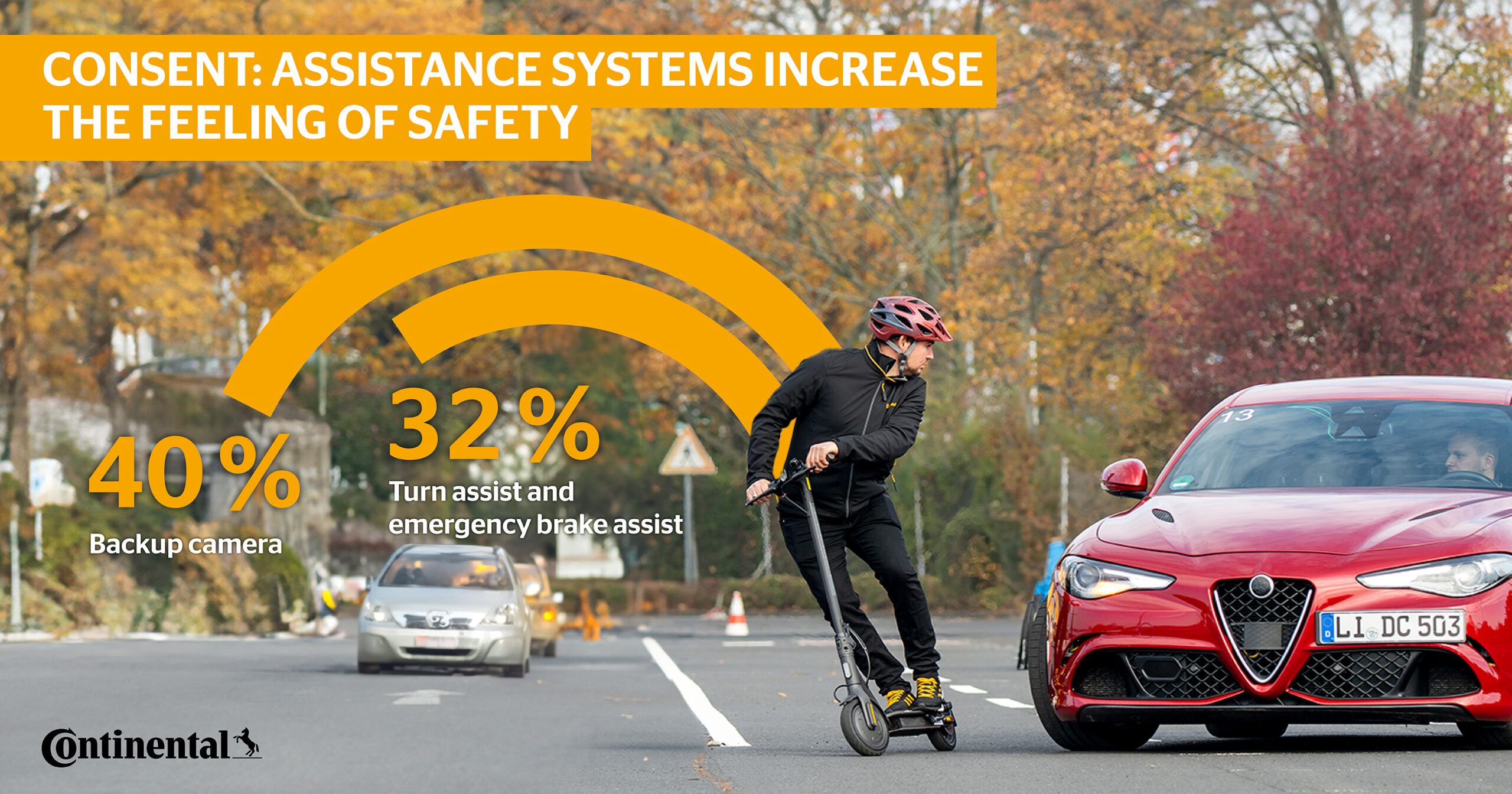
Majority of Germany drivers in favor of health checks for driver license renewals
By onInternational
Nearly two-thirds of drivers in Germany believe regular health checks are a sensible way to determine whether people are fit to drive, according to a survey conducted by Continental AG.
However, the findings also show that older respondents were less likely to agree. Seventy-five percent of 18-29-year-olds said they liked the idea of health checks. Seventy-three percent of those 70 and older opposed the idea, and more than two-thirds of those under 50 years old were in favor of it.
The survey was conducted in March by YouGov on behalf of Continental. There were 2,055 respondents.
“The contrast between generations is even more evident when it comes to whether driving licenses for people aged 70 and over should be valid for a limited amount of time and renewed only if the person passes a health check,” Continental said. “Around half (49%) of those surveyed who think health checks make sense are in favor of more frequent check-ups at least once every two years.”
Continental noted that, across all age groups, the increasing use of modern advanced driver assistance systems (ADAS) makes drivers feel safer behind the wheel.
“The results show that advanced driver assistance systems support drivers on the road, thus living up to their name,” said Gilles Mabire, Continental automotive chief technology officer, in a news release. “As advanced driver assistance systems become more readily available in vehicles, their acceptance is also growing and will only continue to do so.”
According to the survey results, safety and independence while driving are important factors for the majority of people, particularly those who are 70 and over.
“With this demographic group set to increase as a share of Germany’s total population over the coming years, the risks to which senior drivers are exposed will also rise, as will the risks they pose to other road users as a result of potential age-related impairment,” Continental concluded.
Continental said, based on findings from the Federal Statistical Office, that serious accidents are more likely to be caused by older drivers due to driver error when turning, reversing, starting, stopping, or maintaining distance.
Last year, the EU Commission proposed those over age 70 with driver’s licenses should have to submit a self-assessment with a doctor every five years to confirm whether they’re still fit to drive.
The commission said last year its evaluation of rules in place at the time found that age is a factor in fitness to drive but certain mental and medical conditions should be as well including substance abuse, psychiatric disorders, epilepsy, diabetes, heart conditions, and sleep apnea.
“Therefore, rules concerning physical and mental fitness to drive will be modernised so that they align with the latest technological and medical developments, for instance with regard to advances in the treatment of diabetes, where fewer medical checks will be required,” the commission stated in a March 2023 news release. “The latest research and evidence on risks related to driver age also show that people are increasingly fit to drive beyond the current age thresholds. The age from which member states may increase the frequency of medical checks will therefore be raised from the current age of 50 to 70.”
The commission decided against introducing mandatory EU-wide medical checks for 70-plus drivers in February of this year thus allowing member states to determine whether and which health checks make sense in their countries.
Germany doesn’t require mandatory testing.
Examples of other country regulations include:
-
- Spain: Drivers 65 and over must provide medical evidence of their ability to drive to renew their licenses every five years.
- Denmark: Drivers 75 and over must show a medical certificate to renew their licenses. Beginning at 80 years old, a new application has to be submitted every year.
- Italy: Medical examinations for renewals start at age 50, licenses are renewed every five years then every three years beginning at age 70, and every two years at age 80 and above. every two years.
Intelligent speed assistance, reversing detection with camera or sensors, attention warning in case of driver drowsiness or distraction, event data recorders, and an emergency stop signal have been mandatory on vehicles in the EU since 2022. Distracted driving monitoring systems will become mandatory later this year.
The U.S. doesn’t mandate driver medical exams once a certain age is reached at the federal level but some states do restrict drivers based on age.
Last year in the U.S., the National Highway Traffic Safety Administration (NHTSA) proposed adopting new federal standards that would require more effective automatic emergency braking (AEB) and forward collision warning (FCW) systems on new vehicles.
The new rules would build on existing crash imminent braking, dynamic brake support, and FCW systems but require higher speeds. It would require vehicles to be capable of braking at speeds up to 62 mph to avoid a crash when manual braking is applied and up to 50 mph when no manual braking is applied during testing.
Based on recent AAA survey results most U.S. drivers remain highly interested in ADAS. Nearly two-thirds of respondents said they want reverse AEB (65%), AEB (63%), or lane keeping assistance (62%) on their next vehicle. For interest to remain high, it’s crucial to ensure consistency in the performance and naming of the systems, AAA said.
Most respondents to Continental’s survey said ADAS makes them feel safer while driving. Across all age groups, a backup camera is valued most highly on average at 40% followed by turn assist and emergency brake assist systems (both at 32%), adaptive cruise control (31%), parking assist (29%), and lane keeping assist and intelligent headlamp control (both at 28%).
Driver respondents of vehicles model year 2o21 or newer were more likely to view ADAS as helpful than drivers of older vehicles, built in 2020 or before, Continental said.
Approval rates of backup camera use range from 44-65%, turn assist from 33-46%, and AEB from 31-53% for vehicles built between 2011 and 2020 and those built in 2021 or later, respectively.
Both younger age groups and those over the age of 70 said that ease of use was important to them to utilize ADAS.
“This suggests that use of advanced driver assistance systems has a positive effect on appreciation for them since they are more widely available and, therefore, more likely to be used in newer car models,” Continental said. “In short: the newer the vehicle, the more likely its driver is to agree with advanced driver assistance systems’ impact on safety.”
Mabire added, “We see these findings as [an] affirmation of our work and as a mandate to further develop and, where necessary, build trust in the latest safety technologies. Continental is committed to technological advancements in order to develop solutions for increasingly safe, smart and sustainable mobility.”
Across all age groups, the factors that cause the most uncertainty among drivers are bad weather conditions (50%), other road users (49%), and poor visibility (48%). Forty-two percent of the 70-plus age group said they’re more worried about driving at night — a possible indication of seniors’ often deteriorating vision, Continental said.
“Against the backdrop of demographic changes, we recognize a need to combine personal mobility with a high standard of safety into old age,” Mabire said.
Continental says it began developing sensors, software, and intelligent connectivity for ADAS more than 20 years ago and has since put millions of the technologies on the road.
Images
Featured photo credit: dusanpetkovic/iStock
Infographics provided by Continental


